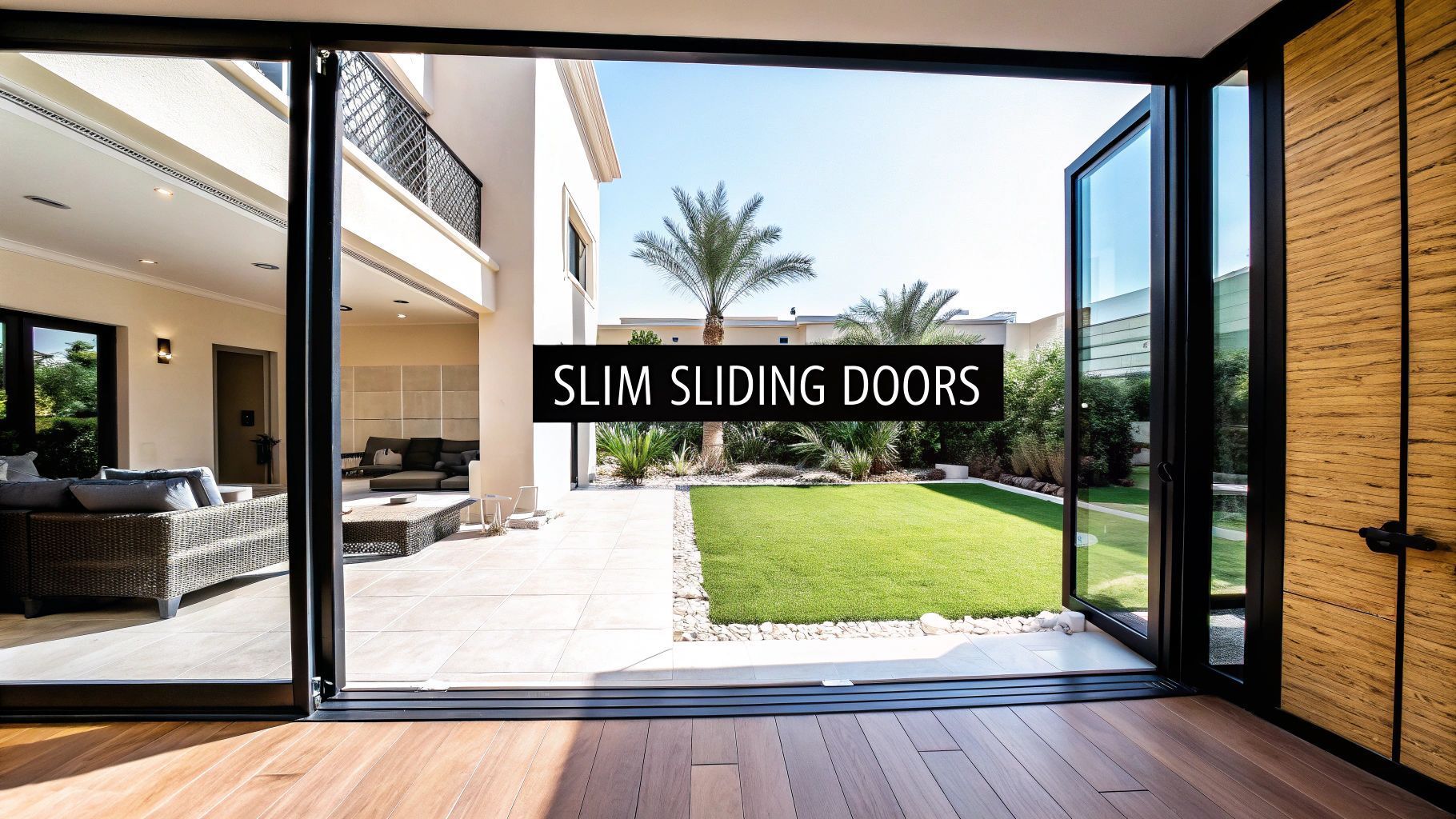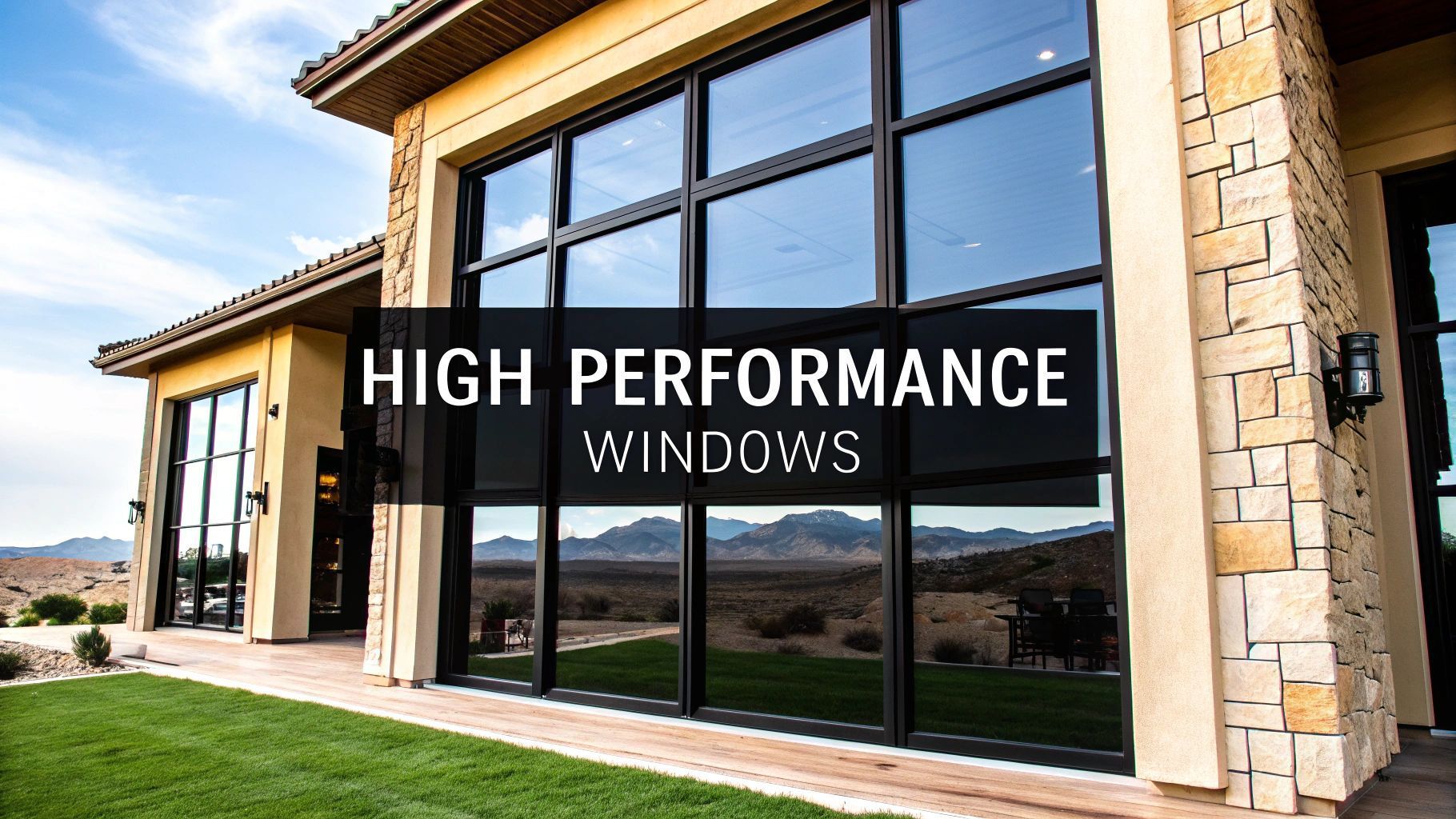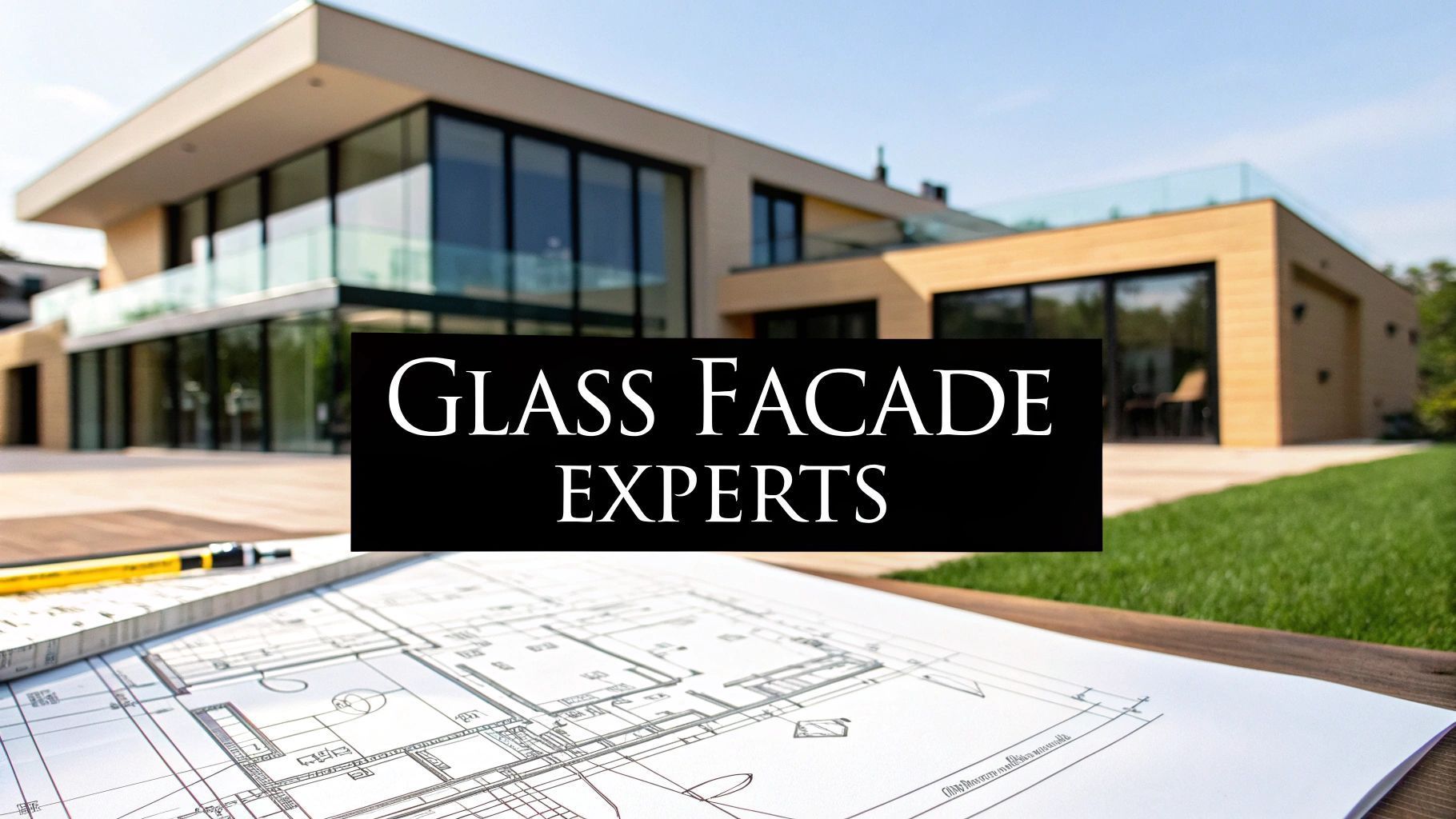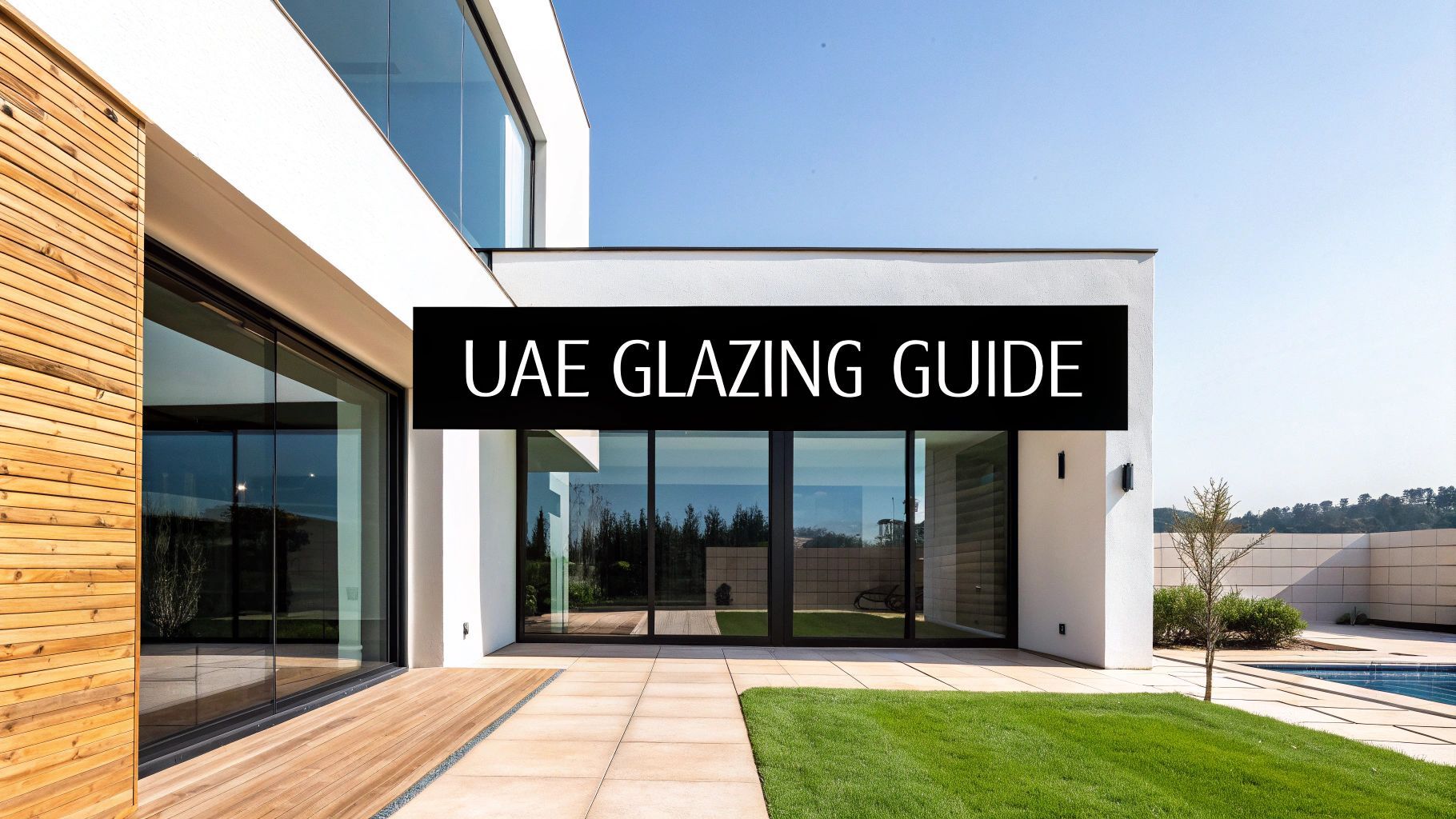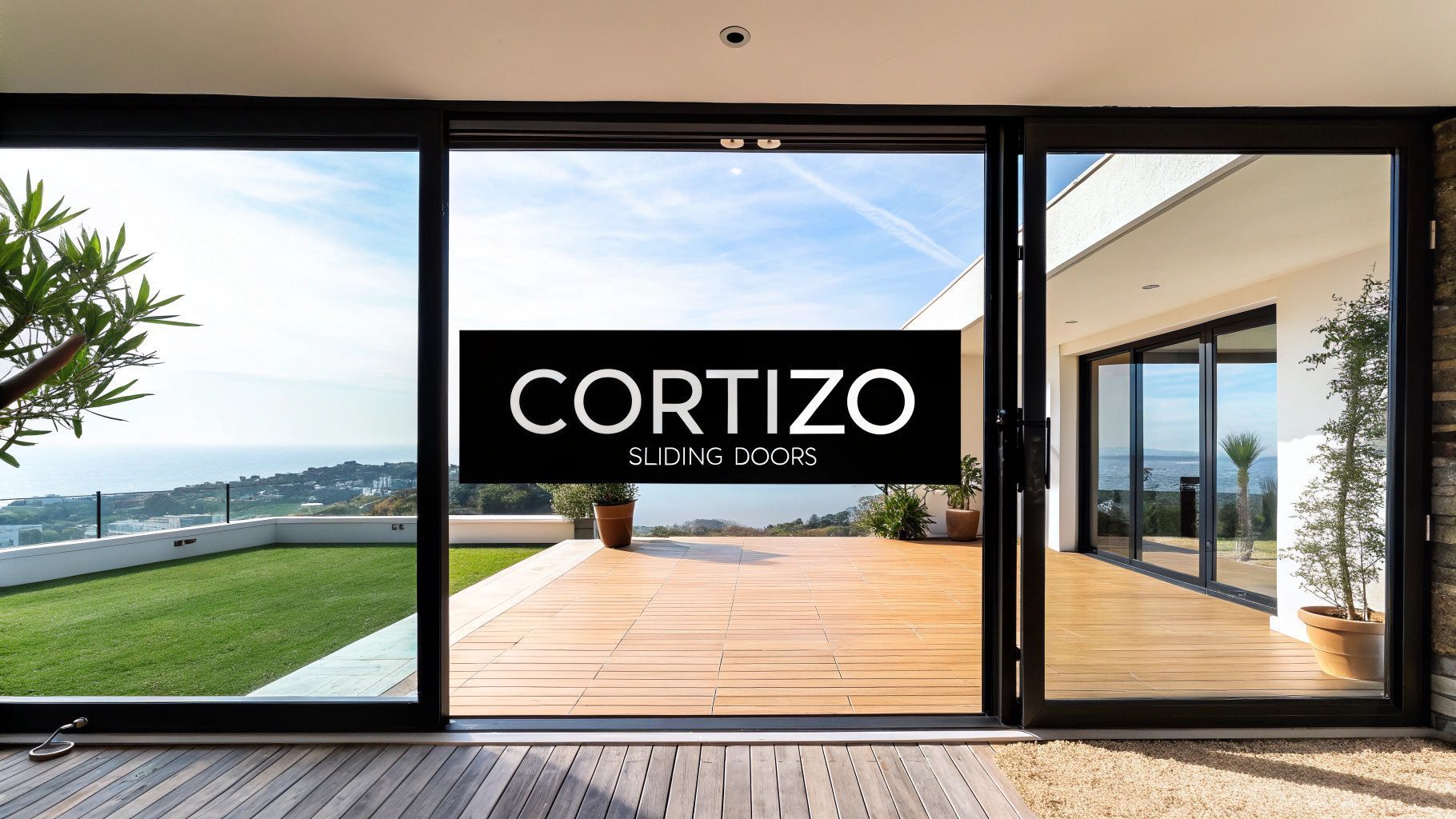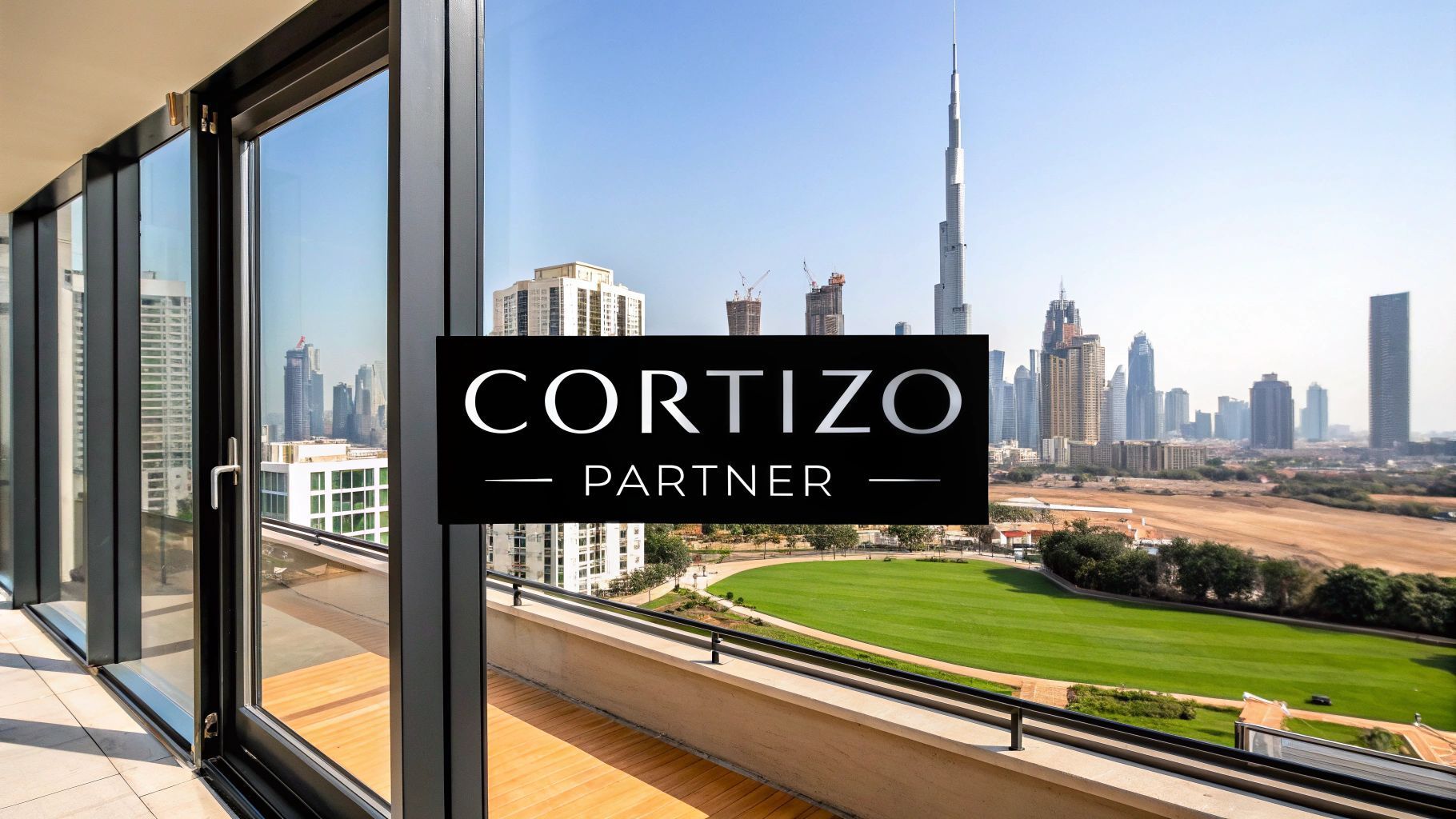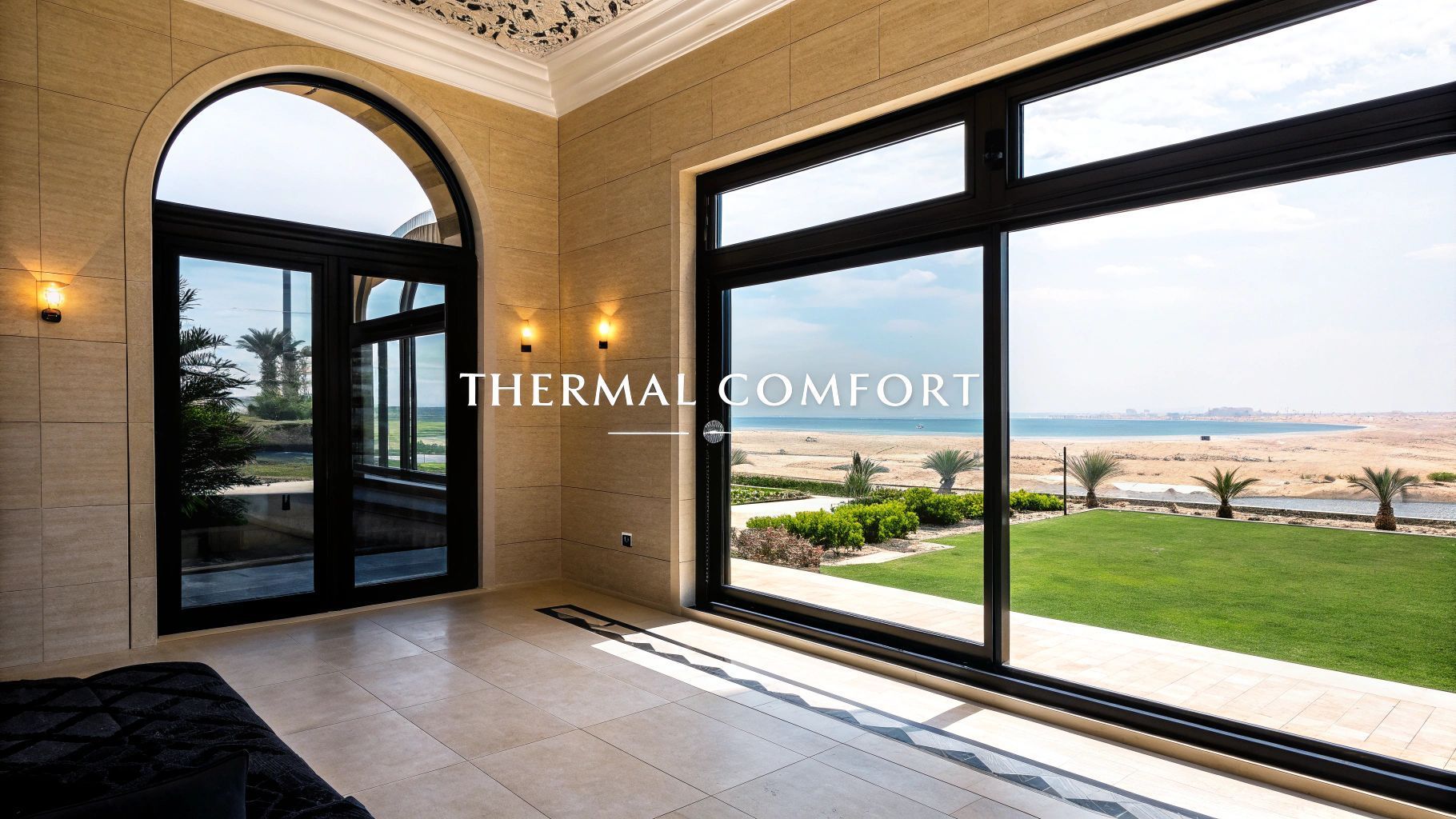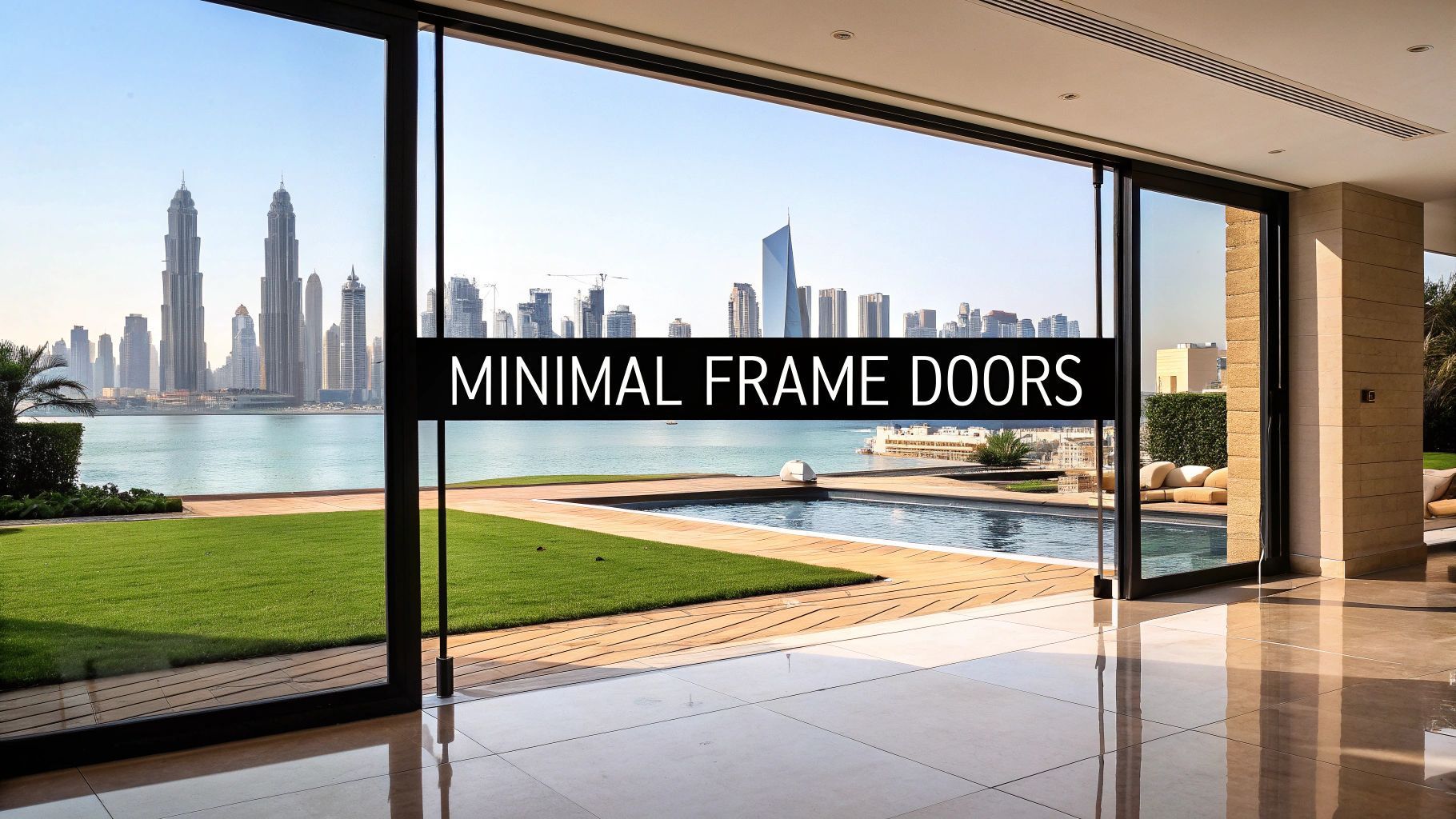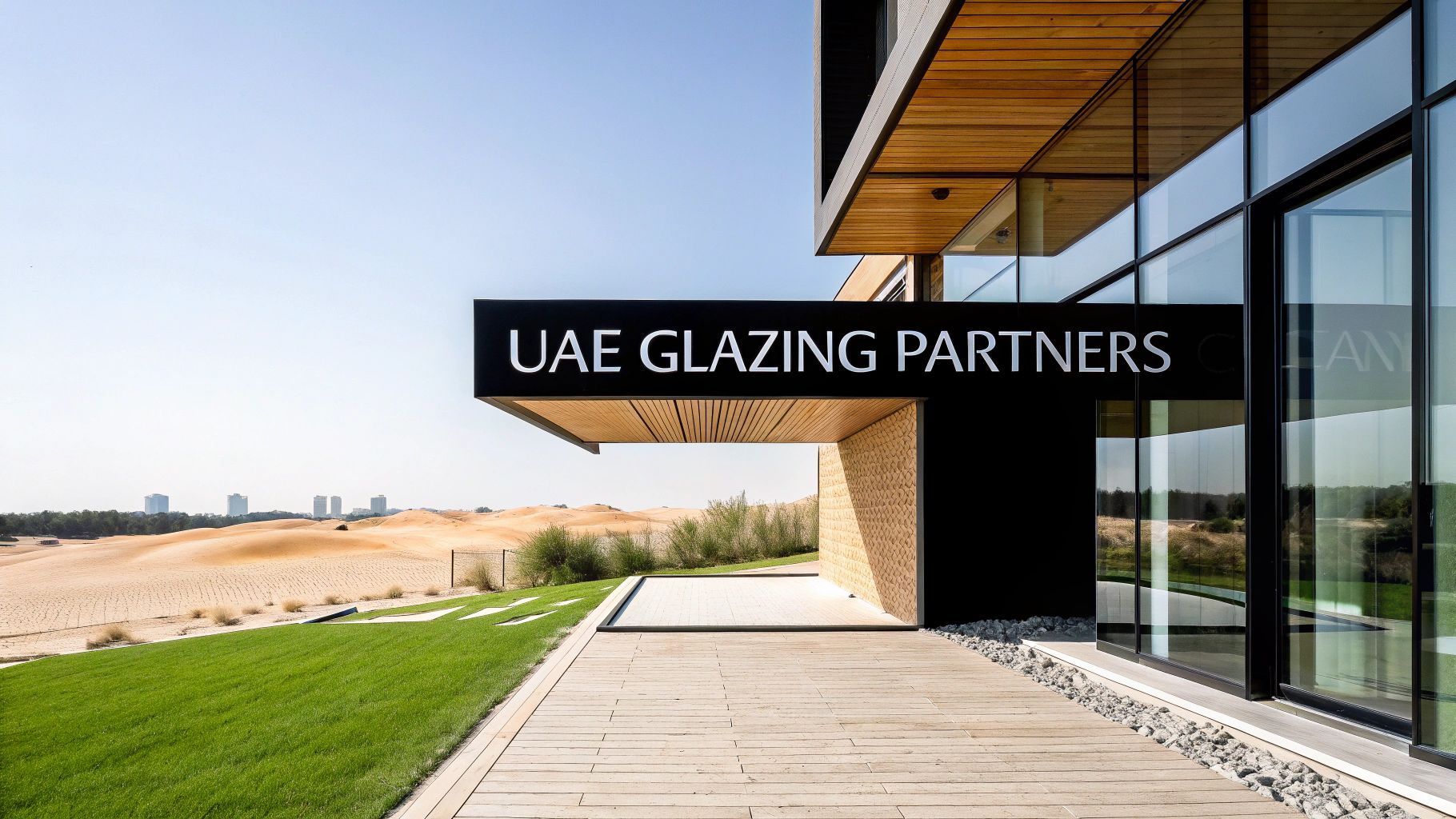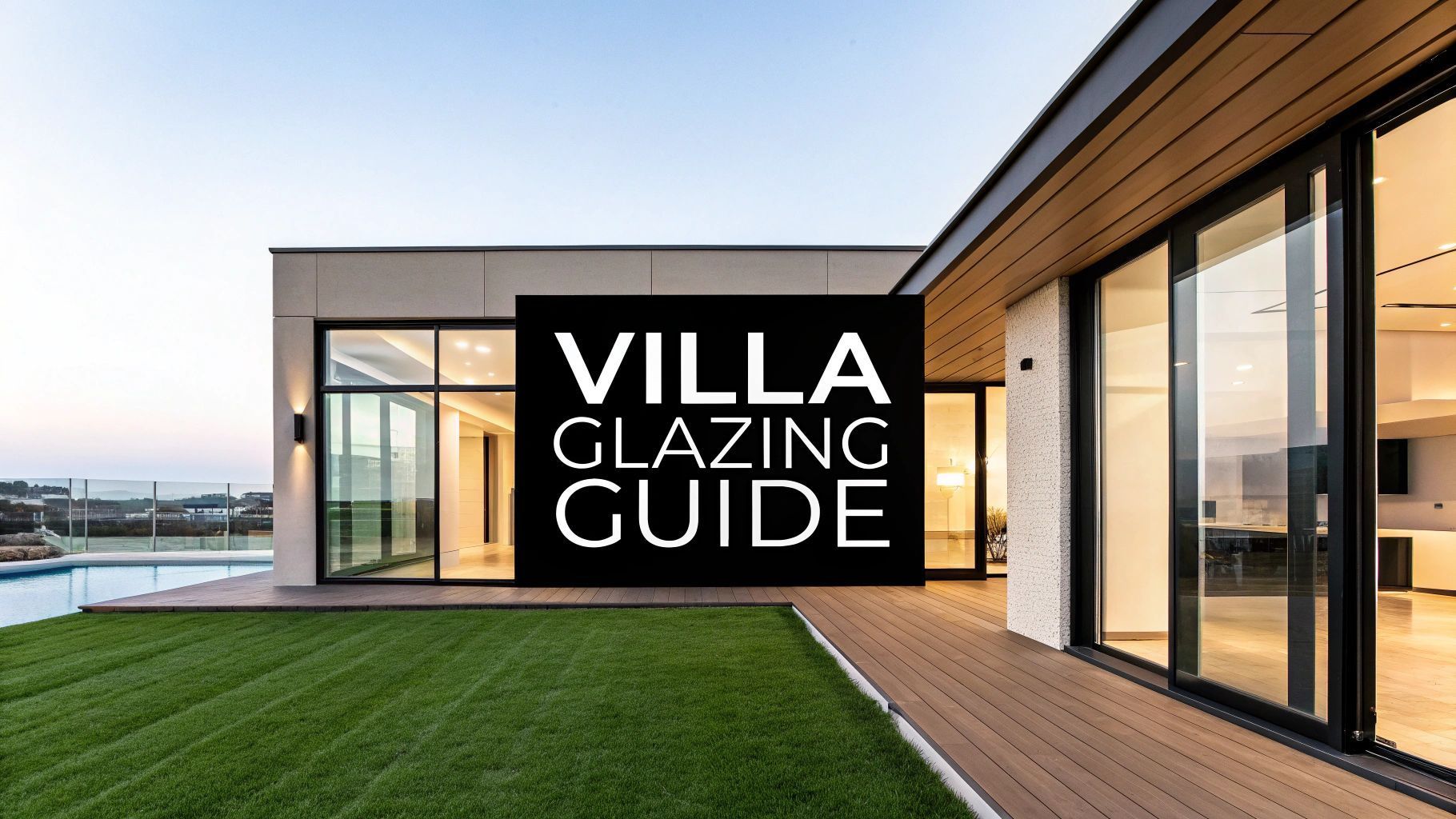Your Guide to a UAE Villa Extension
Your Guide to a UAE Villa Extension
Adding a villa extension isn't just about gaining an extra room; it’s an investment in adapting your UAE home to your lifestyle. Whether you need space for a growing family, a dedicated home office, or a stunning indoor-outdoor area, an extension unlocks your property’s potential. Often, it's a more practical choice than relocating in the current market.
Why Villa Extensions Are Transforming UAE Living
Across the UAE, from communities like Arabian Ranches to waterfront properties on Palm Jumeirah, homeowners are expanding instead of moving. This trend is driven by a desire for personalised spaces that meet modern needs without the disruption of relocating.
The reasons for a villa extension vary, but the goal is always a better quality of life. For many, it’s adding a bedroom for new family members. For others, remote work has made a purpose-built home office a necessity for a healthy work-life balance.
Tailoring Your Home to Your Lifestyle
A well-designed villa extension is your chance to create dream spaces that reflect your personal style. It goes beyond simple function to truly enhance how you live in your home.
Popular projects in the UAE include:
- Indoor-Outdoor Majlis: A modern take on a traditional space, using large sliding glass walls like the Cortizo Cor Vision Plus system to merge an interior lounge with a garden or pool deck.
- Ground-Floor Annexe: A private, self-contained suite for elderly parents or guests, offering them independence while keeping them close.
- Enlarged Kitchen and Family Area: Expanding the heart of the home to create a seamless open-plan area perfect for hosting family and friends.
A thoughtfully designed extension doesn’t just add square footage. It reimagines your home's flow and functionality, improving day-to-day enjoyment.
A Smart Financial Decision
In a rising property market, extending your home can be a smarter financial move than buying a larger property. You avoid significant transaction costs and instead invest directly into an asset you already own, which can boost its market value.
This approach is supported by market trends, as the UAE's residential construction sector is booming. Government frameworks like the Dubai 2040 Urban Master Plan also encourage sustainable development, making integrated extensions a key part of the region's future. You can learn more about the Middle East's residential construction market growth to see the bigger picture.
Ultimately, a villa extension is about future-proofing your home. It creates a flexible space that adapts to your family’s needs for years to come.
Securing Permits and Planning Your Project
Before construction begins, your villa extension project must navigate the approvals phase. This is a critical administrative journey that sets the legal and financial foundation for your build, helping you avoid costly future problems.
Getting this stage right means securing approvals from both government authorities and your community's master developer. For homeowners in Dubai, this involves working with bodies like the Dubai Development authority (DDA) or Dubai Municipality. A registered engineering consultant is a mandatory partner in this process.
Your Consultant and Key Approvals
Your engineering consultant acts as your project's official representative. They translate your vision into architectural and structural plans that meet the UAE's strict building codes. Choosing from Dubai's premier engineering consultant offices is a non-negotiable step.
A key hurdle is securing a No Objection Certificate (NOC) from your community developer, whether you're in an Emaar community like Arabian Ranches or a Nakheel development like Palm Jumeirah. The developer reviews your plans to ensure they fit the community's aesthetic and regulations.
Without a developer NOC, your application to the municipality will not proceed.
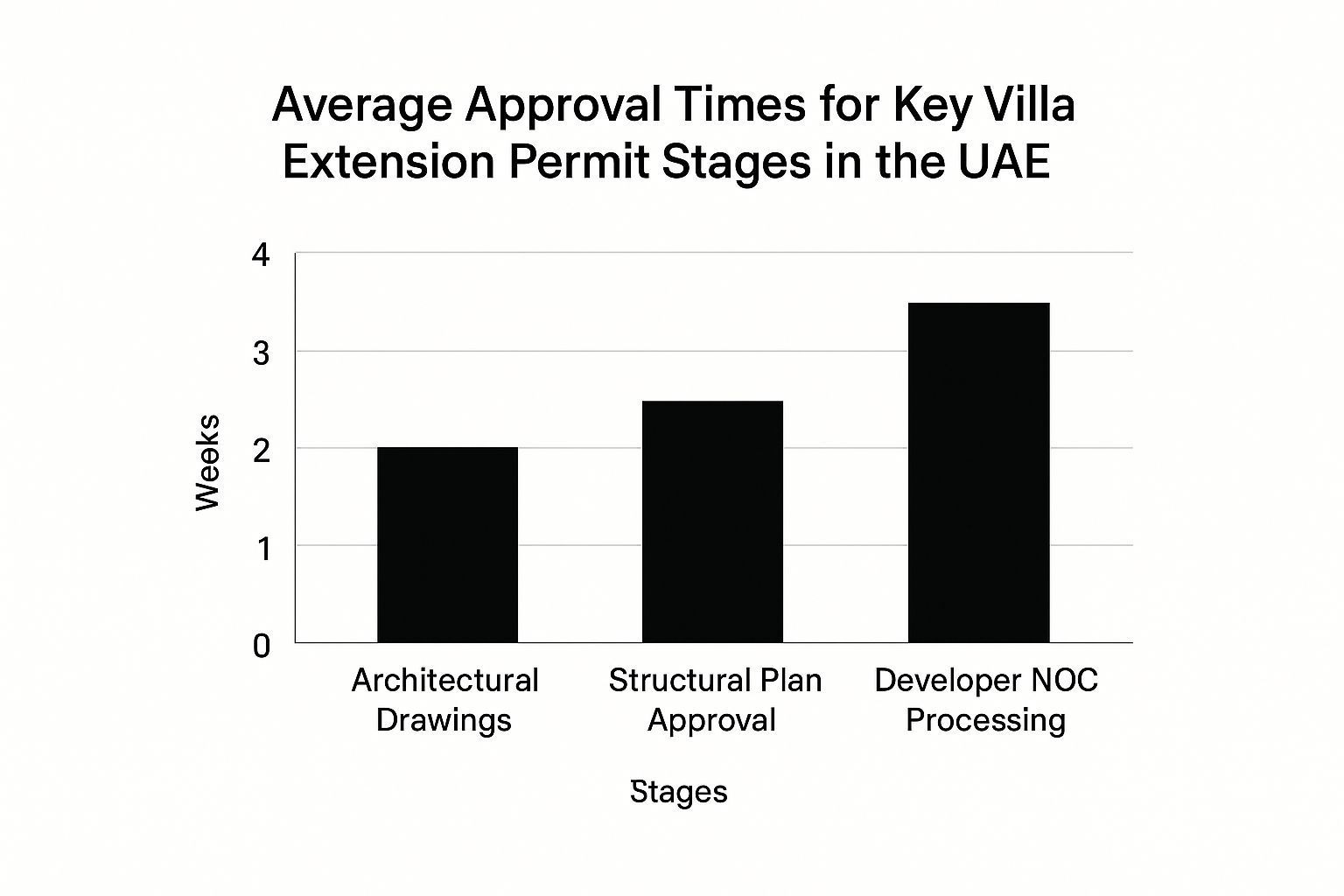
As the infographic shows, developer approval can be the most time-consuming stage. Engaging with them early is essential to keep your project on schedule.
Assembling Your Essential Documents
Your consultant will compile a detailed submission file for the authorities. Getting these documents right from the start is key to preventing delays.
While the exact list can vary, you will typically need:
- Title Deed and Passport Copies: Proof of identity and property ownership.
- Architectural Drawings: Detailed blueprints of your extension, including floor plans and elevations.
- Structural Plans: Engineering drawings that prove the new structure is safe and sound.
- Developer NOC: The essential approval from your master community developer.
- Appointment Letter: A formal letter appointing your registered consultant.
The approvals phase is risk management. A meticulously prepared submission package dramatically reduces the risk of rejection or long delays, saving you significant time and money.
By understanding these steps and hiring an experienced consultant, you can navigate the administrative process efficiently. This foundational work ensures your dream villa extension is handled correctly from a legal and regulatory standpoint.
Designing for the Demanding UAE Climate
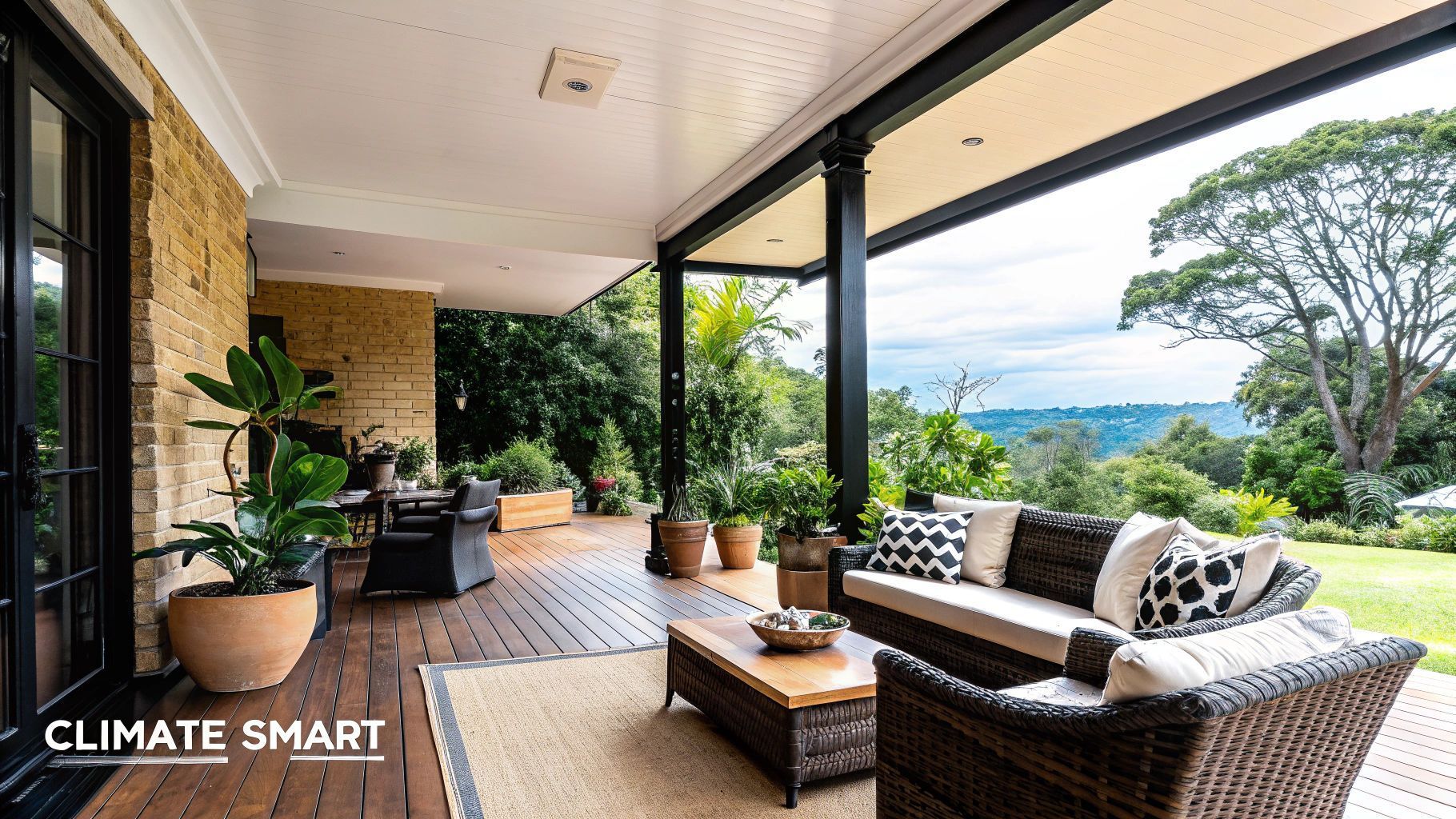
A successful villa extension in the UAE must combat the elements. Smart design is your best defence against extreme heat, invasive dust, noise, and humidity. Your choices will determine if your new space is a comfortable retreat or an expensive-to-cool addition.
Popular ideas, like an indoor-outdoor living area, require a strategic approach to remain comfortable year-round. The goal is to build a beautiful, livable space that works with the climate, not against it.
Material Selection for Peak Performance
The performance of your extension is tied to the materials you choose. In a climate where summer temperatures often exceed 45°C, standard materials are insufficient. You need a combination of durability and high-performance insulation to maintain comfort and manage DEWA bills.
Properly choosing the right construction materials for Dubai's climate ensures both durability and long-term performance.
Prioritise these elements:
- High-Performance Insulation: This is your primary barrier against solar heat gain. Use insulated concrete forms (ICFs) or high-density foam boards for walls and roofs.
- Durable Exterior Finishes: Stucco and stone cladding are excellent choices, robust enough to withstand sandstorms and intense UV exposure without degrading.
- Strategic Shading: Integrate brise-soleil (permanent sunshades) or deep roof overhangs to protect windows from the harsh midday sun.
The Critical Role of Advanced Glazing
Windows and doors are where the battle against the climate is most intense. While large glass panels offer stunning views, they can also act as giant heat conductors. This makes advanced glazing systems a non-negotiable investment for comfort and efficiency.
For example, a homeowner in Arabian Ranches extending their living room towards the garden should use glazing with a low Solar Heat Gain Coefficient (SHGC). This technical term simply means the glass blocks a high amount of the sun's heat, which directly lowers cooling costs.
High-performance glazing systems from brands like Cortizo are designed for this challenge. The Cortizo Cor Vision Plus system allows for massive sliding glass panels with minimal frames, but its real value is its thermal performance. It combines thermally broken aluminium frames with advanced double or triple glazing.
A "thermal break" is a layer of insulating material that separates the inner and outer aluminium profiles, stopping heat from transferring through the frame. To learn more, see our guide on what Low-E glass is and why it matters in Dubai—it features a coating that reflects heat while letting light in.
For maximum insulation, especially against noise, uPVC systems from manufacturers like Deceuninck are another excellent solution. Their multi-chambered profiles provide superb thermal and acoustic insulation, keeping your new space cool and quiet.
Comparing Glazing Solutions for UAE Villa Extensions
This table breaks down leading options to help you choose the right system for your villa extension.
| Glazing System | Key Feature | Best For | UAE Climate Benefit |
|---|---|---|---|
| Thermally Broken Aluminum | A non-conductive barrier separates interior/exterior frames | Luxury villas with large sliding doors and panoramic windows. | Drastically reduces heat transfer, keeping interiors cooler and lowering AC costs. |
| uPVC Systems (Deceuninck) | Multi-chambered profiles create insulating air pockets | Extensions in high-noise areas or projects focused on insulation. | Excellent thermal and acoustic insulation, blocking out heat, dust, and noise. |
| Double/Triple Glazing | Multiple panes of glass with gas-filled gaps (e.g., argon) | Any extension where energy efficiency is a top priority. | Creates a superior barrier against conductive heat gain from the outside air. |
| Low-E Coated Glass | Microscopic metallic coating reflects infrared heat | All south- and west-facing windows and doors with high sun exposure. | Blocks solar radiation while allowing visible light, preventing the greenhouse effect. |
By selecting the right materials and investing in high-performance glazing, you ensure your villa extension is a comfortable, beautiful, and energy-efficient living space.
Choosing the Right Windows and Doors
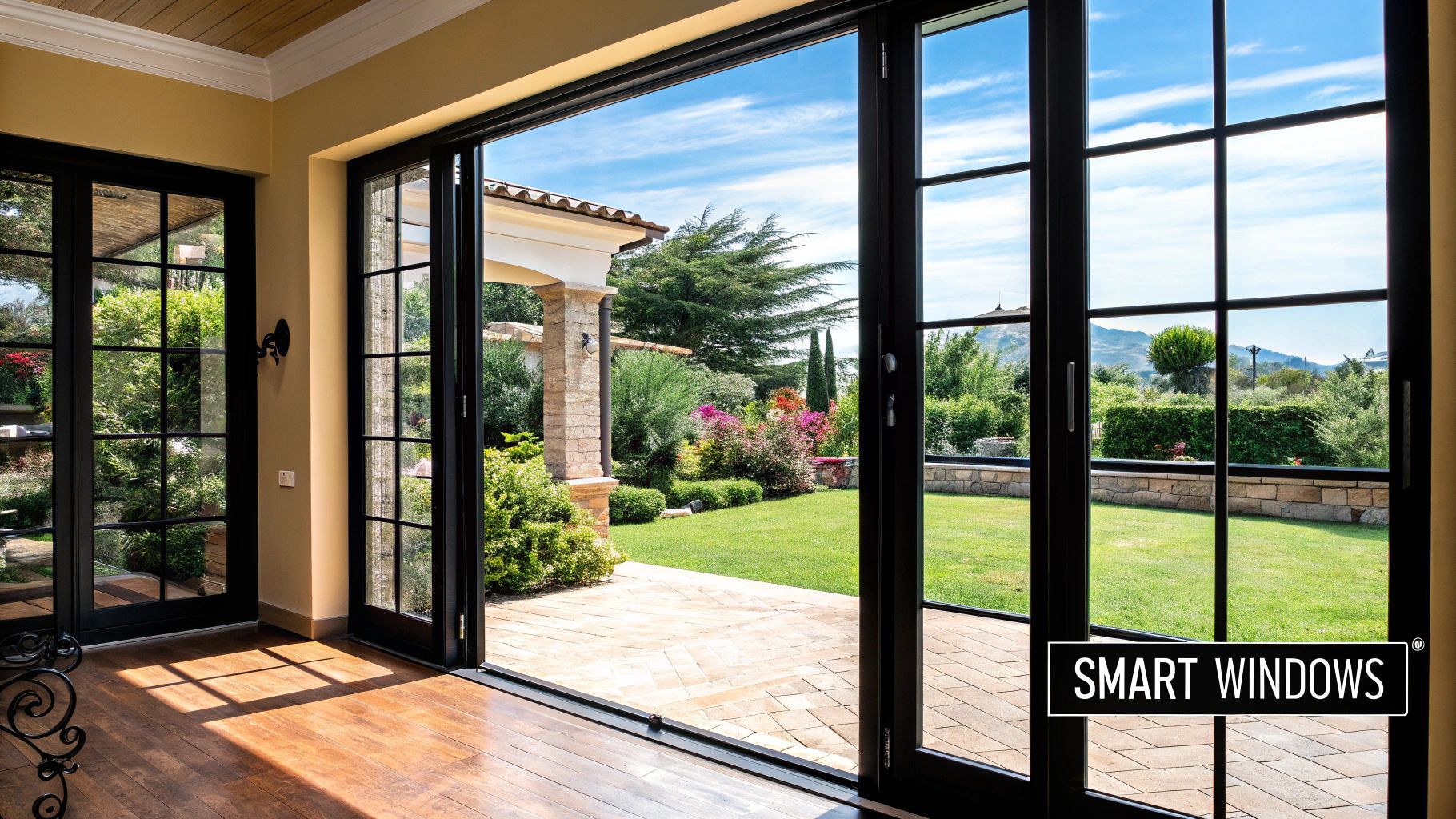
The windows and doors for your villa extension define its character, comfort, and long-term running costs. This decision directly impacts everything from the amount of natural light to the size of your monthly DEWA bill.
In the UAE, the choice is between two high-performance materials: thermally broken aluminium and advanced uPVC. Both are excellent but are suited for different scenarios.
Thermally Broken Aluminium: The Premium Choice
For high-end villa extensions with a minimalist, modern aesthetic and large glass panels, thermally broken aluminium is the leading choice. Brands like Cortizo have perfected this technology, offering systems that are both incredibly strong and energy efficient.
A "thermal break" is a reinforced polyamide bar between the inner and outer aluminium profiles. Aluminium naturally conducts heat; the break stops this transfer, preventing desert heat from entering through the frame. Without it, your window frames act as a bridge for heat.
For example, a project in Emirates Hills connecting to a garden can use a system like the Cortizo Cor 70. It allows for slim, elegant frames supporting massive glass panes, maximising the view while keeping the interior cool. See more in our guide to high-performance aluminium windows in Dubai.
Advanced uPVC: The Insulation Champion
Multi-chambered uPVC systems, like those from Deceuninck, are champions of insulation. The frames are engineered with multiple internal chambers that trap air, creating a powerful barrier against heat and outside noise.
This makes uPVC an excellent choice for extensions in busier communities like Arabian Ranches, or for homeowners focused on thermal and acoustic performance. Modern uPVC designs offer a clean, contemporary finish and turn your extension into a quiet, peaceful sanctuary.
U-Value Explained Simply: The term "U-value" is a grade for heat transfer. The lower the U-value, the better the window insulates. A low U-value means less heat enters your home, resulting in lower air conditioning costs.
Real-World Applications: Transforming Spaces
The right system can completely redefine how your extension functions. This is about creating dynamic, impressive connections to the outdoors.
- For Grand Entrances: A Vetromax Vetro Pivot door, which rotates on a central axis, creates a dramatic, sophisticated entrance for a luxury villa on Palm Jumeirah.
- For Indoor-Outdoor Living: To connect a new family room to a pool deck, the Vetromax Vetro Slide system is ideal. These large sliding doors open up an entire wall, merging indoor and outdoor areas for entertaining.
- For Versatile Facades: Vetromax façade systems provide architects with the flexibility to design custom, high-performance building envelopes that are both visually stunning and climate-resilient.
Ultimately, the right choice balances aesthetics, performance, and budget. Investing in a quality system from brands like Cortizo, Deceuninck, or Vetromax pays dividends in comfort, style, and energy savings.
Managing the Construction Phase Milestone by Milestone
With permits approved and designs finalised, your villa extension moves from paper to reality. This phase demands careful oversight to keep the project on track, on budget, and up to the quality standard you expect.
Breaking the process into key milestones makes it easier to manage. The first step is groundwork, which includes site preparation, excavation, and pouring concrete foundations. Ensure waterproofing is installed correctly to prevent future issues with damp and humidity.
From Structure to Lock-Up
Once the foundations cure, the structural frame of your extension goes up. This is when you finally get a real sense of the new space. Whether using a steel frame or traditional blockwork, this phase moves quickly.
Next, the roof is added, and external windows and doors are fitted. This is the "lock-up" stage, which secures the extension from the elements—especially Dubai’s dust and sand. This allows interior work to begin in a clean environment. This is when your Cortizo sliding doors or Deceuninck uPVC windows are installed.
MEP and Interior Finishes
With the shell secure, the focus shifts inside. The "first-fix" for MEP (Mechanical, Electrical, and Plumbing) involves running all essential pipework, electrical conduits, and air conditioning ducting before walls are closed.
After the first-fix, insulation is fitted and walls are plasterboarded. Then the "second-fix" begins, focusing on visible details:
- Installing light fixtures, sockets, and switches.
- Fitting sanitary ware in new bathrooms.
- Connecting final AC units.
- Laying flooring, tiling, and applying final coats of paint.
Communication with your contractor is crucial. Regular site visits—at least weekly—allow you to catch potential issues early, ask questions, and ensure work aligns with the plans.
The market is strong for quality residential upgrades. The Middle East construction market is projected to grow significantly, fueled by economic expansion and a preference for larger homes. Find out more about Middle East construction market trends.
Managing construction is about staying involved and ensuring quality. Understanding these key milestones helps you track progress and partner effectively with your construction team.
Your Top Villa Extension Questions Answered
Undertaking a villa extension in the UAE comes with many questions. Here are clear answers to the most common queries from homeowners in Dubai, Abu Dhabi, and beyond.
How Long Does a Typical Villa Extension Take in Dubai?
A realistic timeline for a villa extension in Dubai is 6 to 12 months from initial design to final handover. The design and approvals phase alone can take two to four months, involving your consultant, the local municipality, and your community developer (e.g., Emaar or Nakheel).
Actual construction typically takes another four to eight months, depending on the project's size and complexity. Always build a small buffer into your schedule for unexpected delays, such as material sourcing or work stoppages during peak summer heat.
What Are the Best Ways to Control the Project Budget?
Budget control for your villa extension relies on detailed planning, a fixed-price contract, and a contingency fund. Finalise every detail—from materials to fixtures—before seeking quotes. This allows contractors to provide a complete, accurate price.
Insist on a fixed-price contract to lock in the cost for the agreed-upon scope. Most importantly, set aside a contingency fund of 10-15% of the construction cost. This is a safety net for genuine surprises, like discovering poor ground conditions during excavation.
Is an NOC From My Community Developer Really Necessary?
Yes, an NOC (No Objection Certificate) from your master developer is 100% mandatory. Whether you live in Arabian Ranches, Emirates Hills, or on Palm Jumeirah, this is a required first step before applying for a municipal building permit.
The developer ensures your plans comply with the community’s aesthetic rules, plot boundaries, and other regulations. Your architectural consultant will manage the submission process for you.
How Can I Ensure the New Extension Matches My Existing Villa?
A seamless blend is the mark of a quality project. Your architect must meticulously match key features like rooflines, window styles, and exterior textures. This includes using the same paint codes, stone cladding, or render.
Glazing is particularly important. New windows, such as a Cortizo Cor 70 system, must match the style and finish of existing ones. Inside, matching flooring, skirting boards, door styles, and ceiling heights ensures the new space flows perfectly from the old.
Ready to Start Your Villa Extension?
Turning your vision for a villa extension into a beautiful, functional reality requires expert guidance and the right materials. When done correctly, an extension improves your lifestyle and adds lasting value to your property.
The key to a smooth process is having the right team on your side. Their experience ensures your new space meets the highest standards of quality and comfort, from permit approvals to choosing the perfect glazing system.
Taking That First Step
Every successful extension starts with a clear brief. Define exactly what you want to achieve, whether it’s an indoor-outdoor living area, a quiet home office, or a larger kitchen. This helps create a realistic plan that fits your goals and budget.
This is also the time to decide on materials. In the UAE's climate, your choice of glazing is critical. High-performance systems, like thermally broken aluminium from Cortizo, well-insulated uPVC from Deceuninck, or advanced solutions from Vetromax, are long-term investments in your home’s energy efficiency and comfort.
A villa extension is one of the most rewarding investments you can make in your home, tailoring your space perfectly to your life.
If you’re ready to explore the possibilities for your home, the next step is to consult with experts. A professional consultation provides clarity on costs, timelines, and design options, turning your ideas into an achievable plan. To understand what your project might cost, you can request a detailed quote for your project from our team.
If you're planning a renovation or villa upgrade in the UAE, Swift Rooms can help you specify the best window and door system for your project. Contact us today for a quote or consultation.

